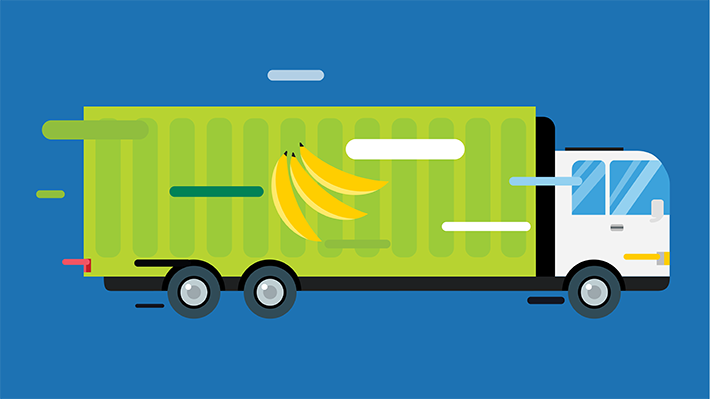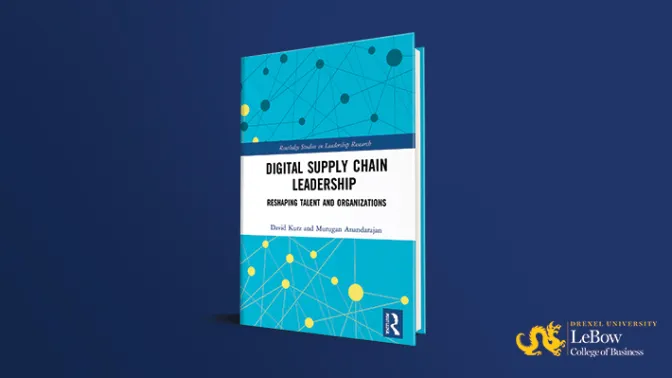
A Conversation with Chris Lewis, Executive Vice President of Supply Chain for Retail Business Services
To lead the transformation of supply chains into the next decade, professionals must identify the opportunities and challenges facing their supply chain processes and consider the resulting impact on the organization, its products and services, and its interactions with suppliers, customers and partners. Drexel LeBow interviews supply chain executives to learn about their roles, their current initiatives and practices, and the future direction of their organizations.
Q: What are the key priorities and functions of your role as Executive Vice President of Supply Chain for Retail Business Services?
Ahold Delhaize USA’s supply chain enables one of the largest grocery retail groups in the nation to meet their customers needs every day. We are in the midst of major transformation to a fully integrated self-distributed supply chain of the future. On top of that, 2020 has been an unprecedented year for grocery and for the food supply chain. As someone with a 40-year tenure in the industry, I can honestly say I’ve never seen anything like it. In this environment, my priorities are two-fold – navigating the current environment to deliver the businesses’ and their customers’ needs and continuing to transform for the future. COVID-19 and the current environment has only emphasized the importance of this work. In addition, innovation is always at the forefront for us. We want to lead in terms of technology, process and delivery and so keeping an eye on the future and how we remain forward-thinking is always important.
Q: As part of the organization’s multi-year supply chain transformation, what were the reasons behind the decision to insource supply chain activities?
The Ahold Delhaize USA supply chain is the product of a merger. On one side of the business, the supply chain has always been self-distributed. On the other side, we engage a third-party partner to support the supply chain. The decision to fully insource the supply chain was made based on the experience we have had with both models, and also to support Ahold Delhaize USA companies’ omnichannel evolution. Each of the grocery retailers we support is on a mission to become the leading omnichannel retailer in its local market. In order for the retail brands to transform and evolve, the supply chain needs to transform and evolve too. To win in a rapidly changing, omnichannel environment, the choice was clear – we need to own our total supply chain. COVID-19 also again underscored this decision. We need to be able to directly control the supply chain, and also have the flexibility to move product around the network, especially in situations of scarcity. What we experienced with a third-party is that we weren’t as nimble as we would like to be. In the future, self-managing our entire supply chain will serve us well in adapting to change and evolving customer needs.
Q: What strategic considerations are involved when deciding where to build or acquire new distribution centers?
The biggest consideration in placing distribution centers is always proximity to local markets. We seek locations where we can serve the grocery retail brands we support in the best way possible. We also seek locations where it’s possible to move product quickly to more than one brand. We also seek locations in some cases where physical assets exist that can be retrofitted and in communities where our operations can make a positive economic impact.
Q: How have changing grocery shopping behaviors due to the pandemic impacted Retail Business Services’ supply chain operations and what measures has the organization adopted to handle this challenge?
Fortunately for us, we were on an omnichannel evolution journey that began a couple years before the pandemic. We had also already started the transformation work to create a fully integrated self-distribution model for the future. What the pandemic, and the impact on consumer shopping patterns, as well as supply and demand, caused us to do was accelerate work already in flight. It also caused us to be scrappy and innovative. In grocery, demand shot up 100 percent over night. That caused us to seek out of the box manufacturers, engage in alternative sourcing and reinvent and reimagine processes to onboard the thousands of new associates we needed to support the supply chain and put enhanced safety measures in place. I’m incredibly proud of the resourcefulness and commitment that our teams have shown during these unprecedented times.
Q: Omnichannel supply chains are very convenient for consumers, but what challenges do they impose on supply chain activities?
To be a truly omnichannel supply chain, we need to be fresh, focused, precise and efficient, among other things. One area that we’ve done a lot of work is in forecasting and replenishment to ensure we have the freshest products available for customers every time they shop, no matter how they show. We are in process of putting in place an innovative, AI-enabled forecasting and replenishment technology, which is now in place at two of Ahold Delhaize USA’s local brands. Running an omnichannel supply chain requires us to take steps like these to ensure that the brands and their customers can depend on us to be in stock every time. Again, for us, some of this work was inflight pre-pandemic, but over the past year, our charge has been around how we accelerate and move fast to meet the needs of consumers whose preferences for channel have shifted.
Q: What skills are important to have in order to build a successful career in supply chain management?
When we look for talent, we look for individuals who want to make a difference in the supply chain. This can manifest in a lot of different ways. We have people in our organization like me who have been part of the supply chain for our entire careers and its part of who we are and how we grew up in our careers. We also have teammates who come from other walks and represent perspectives from outside the industry. I mentioned that we’re in the midst of a transformation. When we hire, we seek people with expertise in systems, operations, process improvement, continuous improvement, digital and technology.
Learn more about Drexel LeBow’s MS in Supply Chain Management and Logistics

